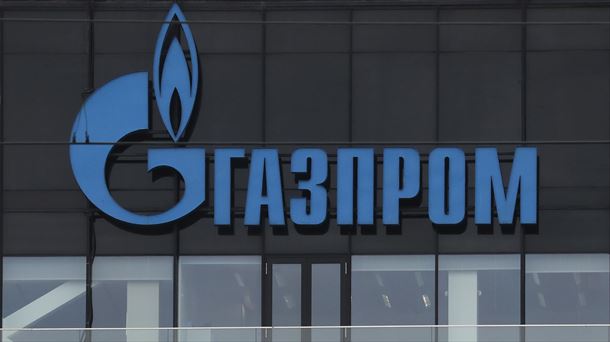Today we celebrate the day of press freedom. In times like these, independent reporting is especially important. Crises, wars and violence have always threatened hard-won justice. Austria has made a small catch-up in this area this year after last year’s catastrophic crash. This is according to the Press Freedom Index.
The non-governmental organization “Reporters Without Borders” ranks the situation for journalists and media in the world and compares the situation in 180 countries and territories. Due to attacks on journalists at Corona demos, intimidation by the police, paid surveys and corruption, the Alpine republic dropped sharply last year – by 14 places, from 17th place to 31st place. According to Reporters Without Borders (RSF), our country has changed this year slightly improved and finished 29th.
With a score of 77.3 (previous year: 76.7), it is in the middle of the countries classified as “sufficient”. It went up again, especially in the field of safety. However, there was a deterioration of the political and legal framework.
Austria is the only EU country without a freedom of information law
RSF’s Austrian section noted that improvements had been announced, preventing a further crash in the rankings. However, this does not change the situation of press freedom for the better. “Austria’s sharp drop in Reporters Without Borders’ press freedom rankings last year has deepened,” said Fritz Hausjell, president of RSF Austria. Media policy “failed to restore threatened press freedom in Austria”. For example, the Freedom of Information Act is cited, which has still not been passed. Austria is the only EU country without such a law, criticized RSF Austria.
The organization is also critical of the fact that the new quality funding for journalism ignores diversity and innovation, for example, and that there are no plans yet to cap funds from government agencies for advertising. “The new Media Transparency Act, which will be drafted in 2022, has not stopped corrupt relations between the government and the media. The government can continue to award advertising contracts and form media partnerships, largely at random and without consequence,” Hausjell criticized.
degenerate disorders
The previous year was also marked by several resignations of well-known editors-in-chief, which showed that individual politicians were too close to individual journalists. “These serious allegations against leading journalists have revealed a picture of depraved conditions, which led to dismissals relatively quickly, but which are enormously damaging to journalism in the country,” said the president of RSF Austria.
Norway at the top for the 7th time
Only eight countries are rated “good” in the Press Freedom Index. The summit leads Norway for the 7th time in a row. This is followed by Ireland, Denmark, Sweden, Finland and the Netherlands. The latter climbed 22 places and regained the position it had in 2021, before crime reporter Peter R. de Vries was killed. In addition to Austria, 43 other countries are rated “satisfactory”. This includes Switzerland (12th place), Germany (21st; dropped 5 places), France (24th), the UK (26th) and the US (45th).
Hungary (ranked 72) is among the countries with “identifiable problems”, as are Poland (57th) and Ukraine (79th). Last in the EU, Greece ranks 107, where journalists are spied on by secret services and spy software. At the bottom of the ranking are North Korea (180), China (179), Vietnam (178), Iran (177), Turkmenistan (176), and Syria (175). Also in Russia (164), where the Kremlin cracks down on the remaining independent media, and Turkey (165), the situation of RSF is classified as “very serious”. There are a total of 31 countries in this category, three more than last year.
RSF Secretary-General Christophe Deloire identified a certain “instability” that was “the result of increasing aggressiveness by authorities in many countries and growing animosity towards journalists on social media and in the real world”. According to the RSF, the fake content industry is on the rise. In 118 countries, most respondents indicated that political actors in their country were often or systematically involved in large-scale disinformation or propaganda campaigns. Manipulated content is used to undermine quality journalism.
One of the greatest goods of democracy
Media Minister Susanne Raab said on Press Freedom Day that this is “one of the greatest assets of our democracy”. A large number of media packages were implemented in Austria last year, “which strengthen the media location and thus the local media in their diversity, independence and press freedom,” said the ÖVP politician, “from the payment of digital transformation funding for more innovative projects of all kinds and more digitization to the reorganization of the promotion of quality journalism and new media transparency rules.
“At the same time, we have secured the public service mandate with the new ORF Act, which means that the program and digital design options have been significantly modernized and rejuvenated,” added Raab. “Journalists can carry out their work freely and independently in Austria. Our job is to support this high democratic asset of freedom of the press and to strengthen media diversity in our country. Both are essential in the fight against fake news. The population of our country must be able to rely on various independent and secure sources of information.”
Source: Krone
I am Wallace Jones, an experienced journalist. I specialize in writing for the world section of Today Times Live. With over a decade of experience, I have developed an eye for detail when it comes to reporting on local and global stories. My passion lies in uncovering the truth through my investigative skills and creating thought-provoking content that resonates with readers worldwide.



